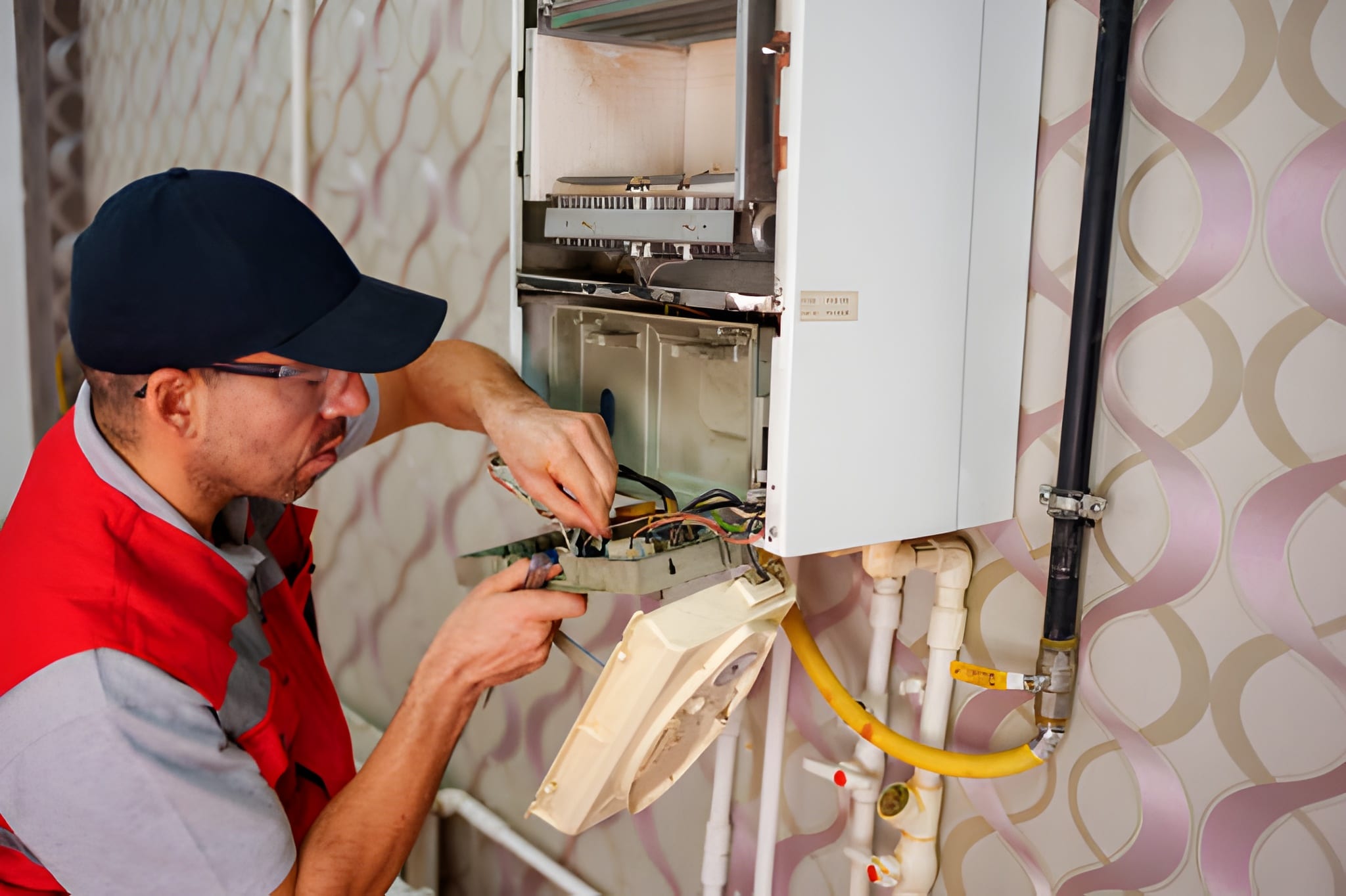Heating Maintenance in Frisco, TX
Keeping your heating system reliable and efficient is essential in Frisco, TX, where seasonal temperature swings and the occasional winter cold snap can strain home HVAC equipment. Proper heating maintenance reduces breakdowns during critical times, lowers energy bills, and helps preserve manufacturer warranties.

Why heating maintenance matters in Frisco, TX
Frisco experiences mostly mild winters but sees sudden cold fronts that can overload a furnace or heat pump when you need it most. New construction is common in this area, meaning a mix of brand-new systems and older units in established neighborhoods. Dust from construction, seasonal pollen, and variable attic temperatures increase the stress on heating components. Regular maintenance ensures your system is ready for those demand spikes, runs safely, and operates as efficiently as possible.
Common heating systems and issues in Frisco
Frisco homes typically use gas furnaces, heat pumps, and electric furnaces or air handlers. Typical maintenance concerns include:
- Clogged or dirty air filters causing restricted airflow and overheating
- Ignition or pilot failures on gas furnaces
- Dirty burners or improper combustion leading to higher fuel use
- Worn blower motors or belts creating noise and reduced airflow
- Refrigerant leaks or low charge on heat pumps reducing heat output
- Cracked heat exchangers or blocked flue vents creating safety risks
- Duct leaks and insulation gaps that lower system efficiency
- Thermostat calibration and control issues affecting comfort
What a seasonal heating Tune-Up includes
A comprehensive seasonal Tune-Up covers inspection, cleaning, testing, and calibration. Typical tasks:
- Visual inspection of the system, cabinet, and vents
- Change or inspect air filters and advise on replacement cadence
- Clean blower assembly, motor, and fan to restore airflow
- Inspect belts and bearings; lubricate moving parts as needed
- Burner cleaning and combustion analysis on gas systems for proper fuel-to-air ratio
- Heat exchanger inspection to detect cracks or corrosion affecting safety
- Check ignition system and safety controls, including limit switches and rollout sensors
- Flue and venting inspection to ensure proper exhaust and no blockages
- Electrical system check: fuses, wiring, connections, and capacitors
- Thermostat calibration and control system diagnostics
- Heat pump-specific checks: reversing valve, defrost cycle, and refrigerant level
- Measure temperature rise or supply/return differentials to assess performance
- Carbon monoxide and gas leak checks for homeowner safety
- System performance report and prioritized recommendations
Each item addresses a failure mode that can cause a breakdown or reduce efficiency. The goal is to catch small issues before they become costly repairs.
How technicians diagnose problems
During maintenance, technicians follow a logical diagnostic process:
- Visual and audible inspection to spot loose parts, leaks, or unusual sounds.
- Airflow and static pressure checks to identify duct or filter restrictions.
- Electrical testing using basic meters to verify voltages and current draw on motors and compressors.
- Thermostat and control system checks to ensure proper cycling and setpoint accuracy.
- Combustion analysis on gas furnaces to measure efficiency and detect incomplete combustion.
- Refrigerant testing for heat pumps, using pressure readings to detect leaks or improper charge.
- Safety tests including limit switch operation and CO measurement where combustion is present.
These tests are explained in plain language and documented, so you know which items are critical now and which are recommended later.
Recommended service schedule for Frisco homes
- Gas furnace: annual Tune-Up in early fall before the heating season.
- Heat pumps: two annual checkups, once in fall (heating readiness) and once in spring (cooling readiness).
- Electric furnaces/air handlers: annual inspection and filter checks.
- Filters: inspect monthly; replace every 1-3 months depending on filter type, pets, and indoor air quality.
- Ductwork: inspect every 2-3 years for leaks and insulation issues; sooner if you notice uneven temperatures.
Following a consistent schedule prevents surprises during the first cold week and keeps systems operating closer to rated efficiency.
Maintenance-plan perks and membership benefits
A formal maintenance plan typically includes:
- Scheduled seasonal Tune-Ups and reminders to keep annual service up to date
- Priority scheduling during high-demand periods
- Discounts on diagnostic fees or repairs included in the plan terms
- Documentation of service visits to support manufacturer warranty requirements
- Tracking of system performance and history for proactive recommendations
For many Frisco homeowners, a maintenance plan provides predictable upkeep, cost savings on repairs, and better long-term value.
How maintenance extends equipment life and preserves warranties
Manufacturers commonly require documented annual maintenance to keep certain warranties valid. Routine service reduces the cumulative stress that causes premature failures:
- Clean components run cooler and experience less wear
- Proper refrigerant charge and combustion tuning reduce strain on compressors and burners
- Early detection of failing capacitors, motors, or heat exchangers prevents secondary damage
- Well-maintained systems maintain efficiency, saving energy and reducing run time
Service records not only protect warranties but also make it easier to establish a baseline for future repairs or replacement decisions.
Practical homeowner maintenance tips
- Replace or clean filters regularly and use the filter size/type recommended by the manufacturer.
- Keep vents and returns unobstructed by furniture or storage.
- For outdoor heat pump units, keep at least 2 feet of clearance and clear leaves and debris seasonally.
- Use programmable thermostats sensibly to avoid extreme setpoint changes that increase run-time.
- Note unusual noises, odors, or cycling and document when they started to guide technician diagnostics.
Regular, simple habits between professional Tune-Ups go a long way toward preserving comfort and system life.
Final note on safety and value
Heating maintenance in Frisco, TX is both a safety measure and an investment. Routine Tune-Ups improve comfort, lower operating costs, reduce emergency repairs, and help maintain warranty coverage. For homeowners who want dependable heat when temperatures drop, a clear maintenance plan and documented service history are the most effective protection for HVAC assets.

Flexible Financing Options
Explore our range of flexible financing options designed to suit your needs and budget.













